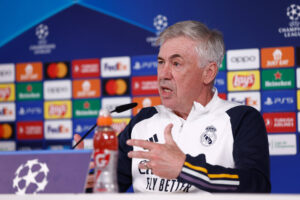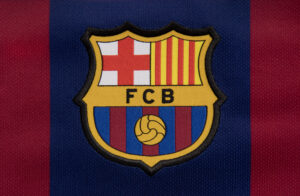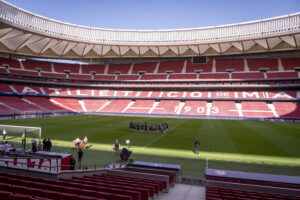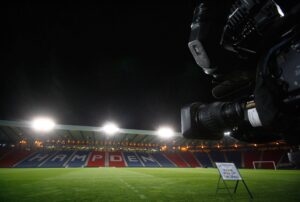For so long, Alex Ferguson has been the obvious person with whom to compare Arsène Wenger. He managed one of England’s biggest clubs; he did so for more than 20 years; and imposed his own persona on the club to such an extent that the two became almost indistinguishable.
Whereas Ferguson was able to continually reinvent himself and his teams over the entirety of his long tenure at Old Trafford, it appears increasingly obvious that Wenger does not possess that ability and that the best of him, and his teams, is now only to be found in the past. In that respect, he is comparable to arguably the greatest manager of all – Brian Clough. And just like Clough, for all the brilliance of his early years, Wenger has ultimately endured a long and sad decline.
Of course, on the surface Clough and Wenger are extremely different individuals. Clough was a genius of a manager who was also a genius as a raconteur. By contrast, although Wenger can speak many more languages than Clough ever could, he is a far more reserved and thoughtful, almost diffident, character.
Clough’s feats as a manager are unsurpassed. His achievements at Derby alone were hugely impressive, as he took them from the old Second Division to the old First Division Championship in 1972. Then, when he was forced out of Derby by their cantankerous chairman, Sam Longson, he achieved even greater things with Nottingham Forest. For four seasons between 1977 and 1980, he achieved what was unthinkable at the time and now seems almost impossible.
First, he took a team struggling at the bottom of the Second Division to promotion, then won the First Division title at the first attempt, then topped that by winning the European Cup at the first attempt and, for his final and greatest trick, he retained it the following season: a feat achieved by only seven other clubs in nearly 60 years of European Cup history.
To this day, Nottingham remains the smallest city ever to have produced a winner of European club football’s greatest competition, let alone a two-time winner, and now that increasingly few clubs even challenge for the Champions League, it can be said with some confidence that that feat will never be equalled, let alone beaten.
Wenger, a keen football historian himself, would be the first to say that even his own impressive achievements at Arsenal pale beside those of Clough at Forest. Nevertheless, he has achieved some unique successes of his own. The first, of course, is the “Invincibles” season of 2003-04, when Arsenal became the first English team in more than a hundred years to go through an entire top-flight season without losing a single match.
The second is less obvious, but no less important. It was to transform the whole image of Arsenal, from essentially a dour, conservative-minded club that had won all their previous 10 league titles playing largely defensive football to one that won three more titles playing probably the most aggressively attack-minded football that has ever been seen consistently in English football, possibly ever and certainly in the post-war period. Put simply, Wenger changed Arsenal from “boring, boring Arsenal” to “scoring, scoring Arsenal”.
It is that second unique achievement which is probably Wenger’s greatest. For all the calls by the Arsenal fans for a new manager after the current one’s second, far less successful decade in charge of the club, only a few want a return to the days when they won very little admiration, certainly among other supporters. In that sense, his lasting legacy at the club may be to have altered its very DNA, such that being an Arsenal fan is no longer the badge of dishonour that it was for so long.
Of course, many would say that in the last ten years or so Wenger has substituted the dishonour of playing defensive football for the dishonour of playing fundamentally unsuccessful football. In that respect, the second half of his career at Arsenal is strikingly similar to the second half of Clough’s career at Nottingham Forest. Both men went from winning the biggest prizes in the game to settling for consolation prizes: in Clough’s case the couple of League Cups that he won at the end of his time in charge at Forest; in Wenger’s case, the couple of FA Cups with which Arsenal ended their long trophy drought in 2014 and 2015.
Clough, of course, was ultimately undone by alcohol. Wenger has been drunk on a very different tipple – power, specifically the absolute power that he has enjoyed at Arsenal for the last decade, since the club moved from Highbury to the Emirates Stadium.
When David Dein was on the scene, the manager had a right-hand man who could negotiate even the most difficult transfers quickly and conclusively. The outstanding example, of course, was the capture of Sol Campbell from Spurs and more than 15 years on from that controversial signing, the presence that he added to a brilliant but unstable side suggests that he is one of the club’s most important signings.
Similarly, Clough was never quite the same after his own famous footballing partnership with Peter Taylor ended. Just as Arsenal’s league success has dipped since Dein left in 2007, so Clough never again genuinely competed for the title after Taylor left him. It is as if both men—Wenger and Clough—were managerial masters, but that mastery could only be displayed when they were in concert with a much more pragmatic, down-to-earth sidekick, who could rescue them from their worst flights of fancy.
Increasingly, it seems inevitable that Wenger will depart Arsenal, if not this summer then certainly in the next season or two. When he does, he will hope that he does not replicate Clough in the worst way possible. As Forest ultimately went back to where they had come from, the second tier of English football, the growing fear among many Arsenal fans is that Wenger will depart having led the club to their own form of relegation – from the top four and the lucrative place in the Champions League that Wenger has clung on to for so long.
Main Photo






